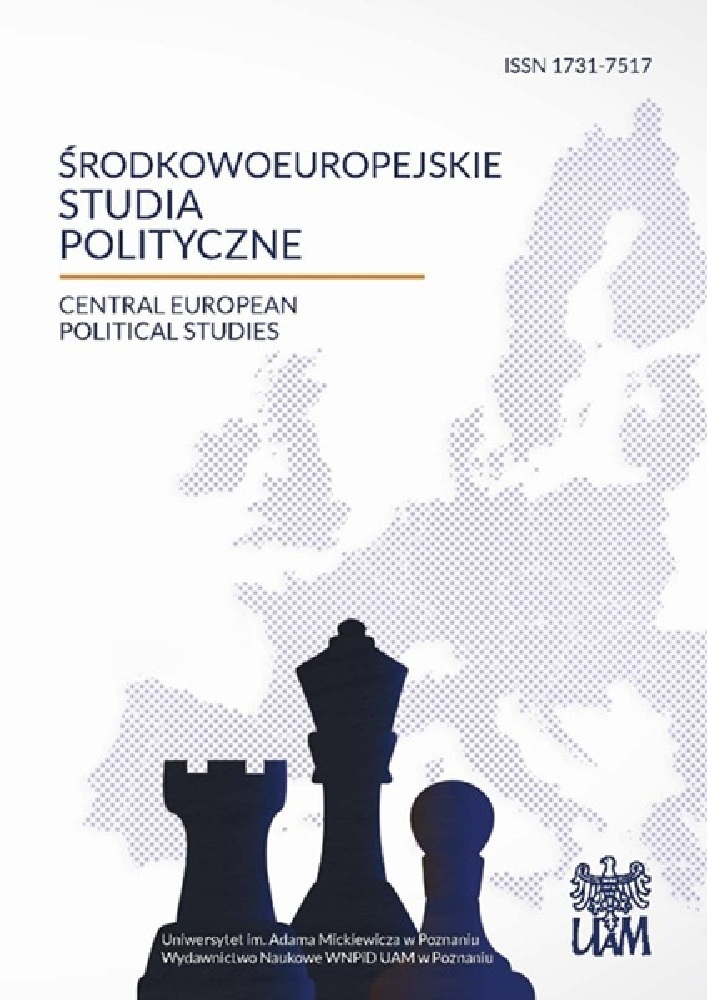Abstrakt
The main goal of this article is introduction to the Actor-Network Theory (ANT) to raise questions about its role in International Relations. While concepts of ANT are very promising we propose to treat ANT as a new theoretical model for international relations scholarship. ANT argues us to recognize that such things as currency, weapons, computers, ships, silk, and others objects are inherent part of international relations. The interest of ANT in International Relations reflects a growing dissatisfaction with the cultural reductionism (constructivism) and methodological nationalism. ANT abandons the dichotomy between the idea and material and argue that such dualisms might prevent us from understanding of international relations. Rejecting this dualisms is to argue for ontological multiplicity of international relations.We initiating in polish International Relations what we hope will be example to bring ANT and International Relations into conversation.
Bibliografia
Amelina A., Faist T., Schiller N. G., Nergiz D. D. (2012), Methodological Predicaments of Cross-Border Studies, w: Beyond Methodological Nationalism. Research Methodologies for Cross-Border Studies, red. A. Amelina, T. Faist, N. G. Schiller, D. D. Nergiz, Routledge, New York.
Batchelor R. (2006), On the Movement of Porcelains: Rethinking the Birth of the Consumer Society as Interactions of Exchange Networks, China and Britain, 1600–1750, w: Consuming Cultures, Global Perspectives, red. J. Brewer, F. Trentmann, Oxford, Berg.
Bauman Z., Kubicki R., Zeidler-Janiszewska A. (2009), ¯ycie w kontekstach. Rozmowy o tym, co za nami i o tym, co przed nami, Wydawnictwo Akademickie i Profesjonalne, Warszawa.
Boles E. E. (2002), Critiques of World-Systems Analysis and Alternatives: Unequal Exchange and Three Forms of Class Struggle in the Japan-US Silk Network, 1880–1890, „Journal of World-Systems Research”, vol. VIII, nr 2.
Braudel F. (1992), Kultura materialna, gospodarka i kapitalizm XV–XVIII wiek. Struktury codzienności, t. 1, PIW, Warszawa.
Braudel F. (2006), Gramatyka cywilizacji, Oficyna Naukowa, Warszawa.
Bueger Ch. (2013), Actor-Network Theory, Methodology, and International Organization, „International Political Sociology”, vol. 7, issue 3.
Cohn B. S. (1996), Colonialism and its Forms. The British in India, Princeton University Press, Princeton.
Curthoys A., Lake M. (2005), Introduction, w: ConnectedWorlds. History in Transnational Perspective, red. A. Curthoys, M. Lake, Australian National University, Canberra.
Dant T. (1999), Material Culture in the Social World: Values, Activities, Lifestyles, Open University Press, Buckingham.
Edwards E., Gosden Ch., Philips R. B. (2006), Sensible Objects. Colonialism, Museums and Material Culture, Berg, Oxford (New York).
Gałganek A. (2011), ¯ycie międzynarodowe rzeczy. Przedmioty luksusu i codziennego użytku w społecznej historii stosunków międzynarodowych, „Przegląd Politologiczny”, vol. XVI, nr 3.
Goody J. (2009), Kradzież historii, Wydawnictwo Naukowe PWN, Warszawa.
Iriye A., Saunier P-Y. (2009), The Palgrave Dictionary of transnational history from the mid-19th century to the present day, Palgrave Macmillian, Houndmills.
Klinghoffer A. J. (2006), The Power of Projections: How Maps Reflect Global Politics and History, Praeger, Westport.
Kopytoff I. (1986), The Cultural Biography of Things: Commoditization as Process, w: The Social Life of Things: Commodities in Cultural Perspective, red. A. Appaduari, Cambridge University Press, Cambridge.
Latour B. (2000), The Berlin Key or How to doWords with Things, w: Matter, Materiality and Modern Culture, red. P. M. Graves-Brown, Routledge, London.
Latour B. (2007), A plea for earthly sciences. Keynote lecture for the annual meeting of the British Sociological Association, London.
Latour B. (2010a), Splatając na nowo to, co społeczne. Wprowadzenie do teorii aktora-sieci, Universitas, Kraków.
Latour B. (2010b), Przedmioty także posiadają sprawczośæ, w: Teoria wiedzy o przeszłości na tle współczesnej humanistyki, red. E. Domańska, Wydawnictwo Poznańskie, Poznań.
Levi G. (1991), On Microhistory, w: New Perspective on Historical Writing, red. P. Burke, Polity Press, Cambrigde.
McClintock A. (1995), Imperial Leather: Race, Gender and Sexuality in the Colonial Contest, London–New York [cytuję tłum. Jacka Dobrowolskiego w: A. Colás (2008), Imperium, Wydawnictwo Sic!, Warszawa].
Nexon D. H., Pouliot V. (2013), „Things of Networks”: Situating ANT in International Relations, „International Political Sociology”, vol. 7, issue 3.
Novack G. (1972), Uneven and Combined Development in World History, w: G. Novack, Understanding History, Pathfinder Press, New York.
Olsen B. (2010), Kultura materialna po tekście, w: Teoria wiedzy o przeszłości na tle współczesnej humanistyki, red. E. Domańska, Wydawnictwo Poznańskie, Poznań.
Pomeranz K. (2007), Social History andWorld History: From Daily Life to Patterns of Change, „Journal of World History”, vol. 18, nr 1.
Sachsenmaier D. (2007), World History as Ecumenical History?, „Journal of World History”, vol. 18, nr 4.
Schiller D. (2011), Geopolitical-economic conflict and network infrastructures, „Chinese Journal of Communication”, vol. 4, nr 1.
Schiller N. G. (2005), Transnational social fields and imperialism: Bringing a theory of power to Transnational Studies, „Anthropological Theory”, vol. 5, nr 4.
Seigel M. (2005), Beyond Compare: Comparative Method after the Transnational Turn, „Radical History Review”, nr 91.
Serres M. (1989), Detachment, Ohio University Press, Athens.
Serres M. (1995), Genesis, The University of Michigan Press, Ann Arbor.
Sloterdijk P. (2011), Kryształowy pałac. O filozoficzną teorię globalizacji, Wydawnictwo Krytyki Politycznej, Warszawa.
Taussig M. (1993), Mimesis and Alterity: A Particular History of the Senses, Routledge, New York.
Trentmann F. (2009), Crossing Divides. Consumption and globalization in history, „Journal of Consumer Culture”, vol. 9, nr 2.
Trubitt M. B. D. (2003), The Production and Exchange of Marine Shell Prestige Goods, „Journal of Archaeological Research”, vol. 11, nr 3.
Van Tilburg H. K. (2007), Vessels of Exchange. The Global Shipwright in the Pacific, w: Seascapes. Maritime Histories, Littoral Cultures, and Transoceanic Exchanges, red. J. H. Bentley, R. Bridenthal, K. Wigen, University of Hawai’i Press, Honolulu.
Licencja
Copyright
© 2014, Uniwersytet im. Adama Mickiewicza w Poznaniu, Wydawnictwo Naukowe Instytutu Nauk Politycznych i Dziennikarstwa
OPEN ACCESS
